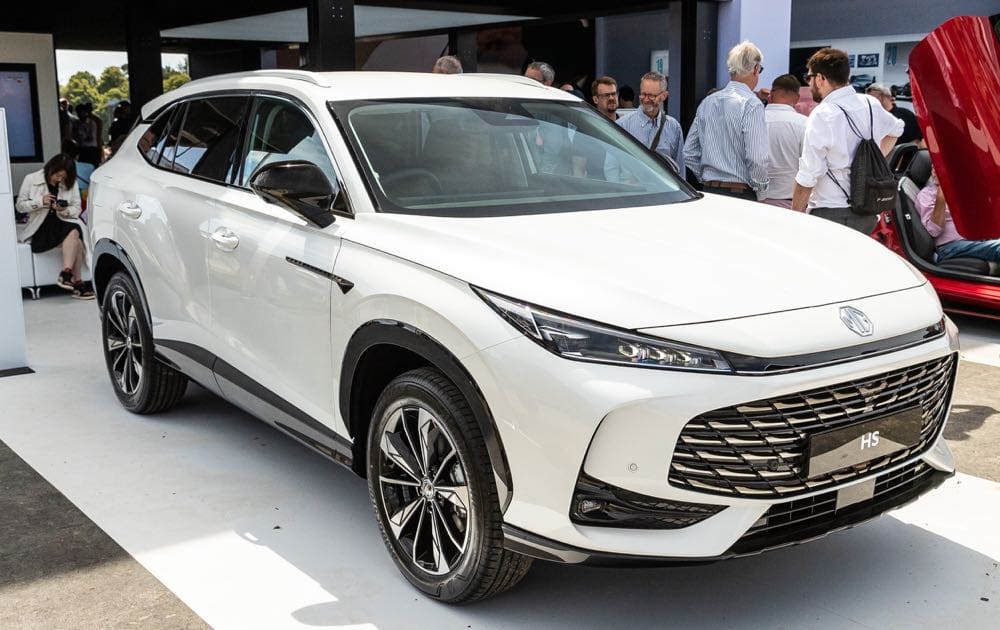Wales saw the steepest decline in UK for new car registrations last month.
Coming immediately before the new 25-plate this month, registrations in Wales were 13.16% down on the same month last year.
Total registrations in Wales in February were 2,323 new cars and that contributed to a 11.91% drop through the first two months of 2025. The MG HS SUV was the best selling car in Wales last month and the Nissan Qashqai and VW Golf tied in tenth place.
The UK new car market dipped in February, down -1.0% to 84,054 units, according to the latest figures from the Society of Motor Manufacturers and Traders.
In what is usually the smallest month of the year (accounting for only around 4% of annual volumes), February was the fifth consecutive month of decline, with a -4.0% reduction in fleet registrations – which have driven previous market growth. Private registrations rose by 4.6% to slightly increase overall market share to 35.6%, while the much smaller business sector rose by 3.3%.
EV registrations driven by heavy manufacturer discounting and pushed sales into business continued to grow with pure battery models up 41.7% to 21,244 registrations while plug-in hybrid cars rose 19.3% and hybrid cars nosed up 7.9%.
A quarter of new cars registered were electrified as the tax system will see them paying new VED rates for the first time if registered from 1 April, so any EV taxed this month will escape the new tax for 12 months.
Current EV owners who pay no tax have been advised to pay for the next 12 months before the end of March to get a final 12 months free of VED tax.
Despite the rise in EV registrations last month it still means the industry will fall short of the 28% target projected for 2025 and manufacturers face hefty fines if they don’t reach this level so are restricting petrol and diesel sales as a result.
The punitive Expensive Car Supplement which, from 1 April will add £2,125 over six years to the cost of BEVs with a list price above £40,000.
Relative to the rest of the market, BEVs are disproportionately affected as higher production costs meaning the average BEV retails above the ECS threshold, a threshold which remains unchanged since its introduction in 2017 and the industry through the SMMT wants to see this ceiling raised to maintain the move towards BEVs.
Manufacturers have already underwritten the transition to the tune of more than £4.5 billion in discounts over the last year alone – on top of the billions invested in developing and bringing the vehicles to market.
Such industry support is unsustainable which is why the current ZEV Mandate must arrive at measures which afford greater market flexibilities, incentivise private purchases, and both encourage and facilitate a faster rollout of charging infrastructure.
Mike Hawes, SMMT Chief Executive said, “Although February’s figures show a subdued overall market, the good news is that electric car uptake is increasing, albeit at huge cost to manufacturers in terms of market support.
“It is always dangerous, however, to draw conclusions from a single month, especially one as small and volatile as February. With the all-important March number plate change now upon us, and tax changes taking effect in April that will, perversely, dissuade EV purchases, we expect significant demand for these new products next month – but, long term, EV consumers need carrots, not ever more sticks.”
Top registrations
Wales
- MG HS
- Volvo XC40
- Kia Sportage
- Peugeot 2008
- Vauxhall Corsa
- Peugeot 3008
- Ford Puma
- Nissan Juke
- Vauxhall Mokka
- *Nissan Qashqai &
- VW Golf
UK
- MINI
- Tesla 3
- Tesla y
- VW Golf
- VW Tiguan
- Nissan Juke
- Nissan Qashqai
- Kia Sportage
- Volvo XC40
- Ford Puma


